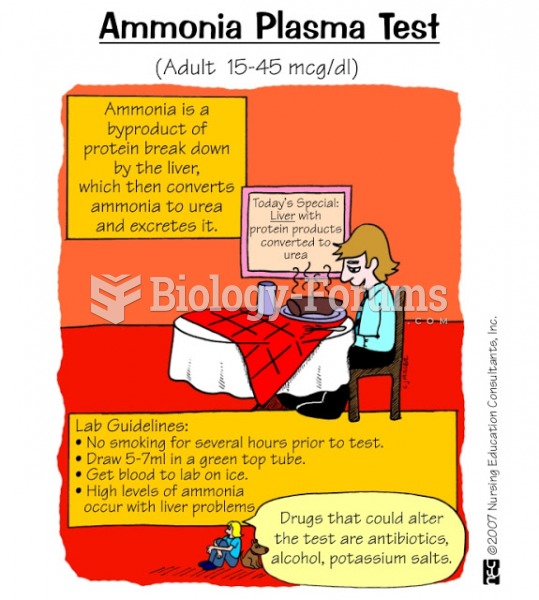|
|
|
In the United States, an estimated 50 million unnecessary antibiotics are prescribed for viral respiratory infections.
Drug abusers experience the following scenario: The pleasure given by their drug (or drugs) of choice is so strong that it is difficult to eradicate even after years of staying away from the substances involved. Certain triggers may cause a drug abuser to relapse. Research shows that long-term drug abuse results in significant changes in brain function that persist long after an individual stops using drugs. It is most important to realize that the same is true of not just illegal substances but alcohol and tobacco as well.
Carbamazepine can interfere with the results of home pregnancy tests. If you are taking carbamazepine, do not try to test for pregnancy at home.
If you could remove all of your skin, it would weigh up to 5 pounds.
Women are two-thirds more likely than men to develop irritable bowel syndrome. This may be attributable to hormonal changes related to their menstrual cycles.
 An example of color blindness test. A person with red-green color blindness would not be able to dis
An example of color blindness test. A person with red-green color blindness would not be able to dis
 Sample of an informed consent to perform an operation, sedation, anesthesia, and other medical servi
Sample of an informed consent to perform an operation, sedation, anesthesia, and other medical servi





